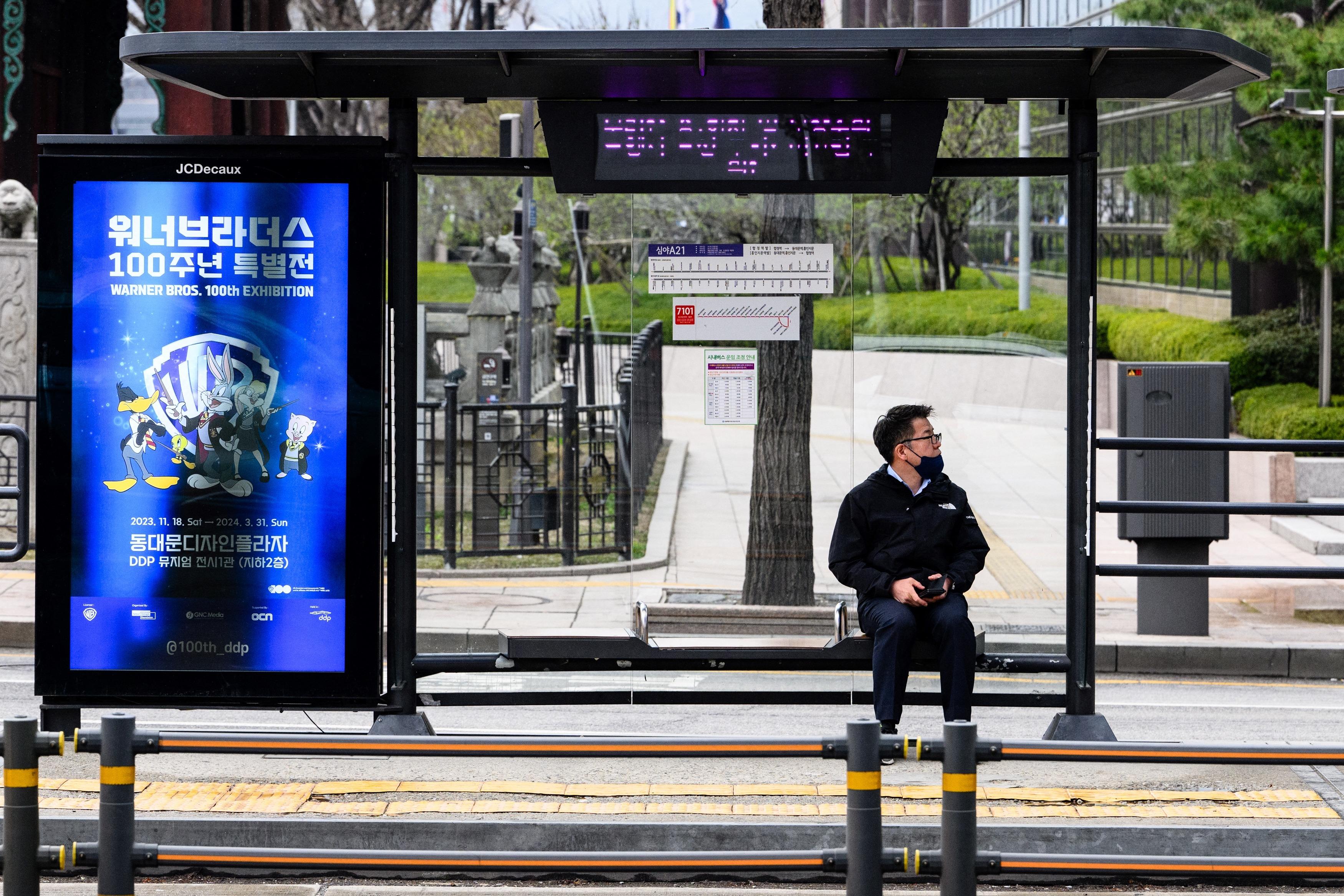 A man sits at a bus stop in Seoul on March 28, 2024, as unionized Seoul Bus drivers went on strike, bringing over 7,200 buses to a full stop and disrupting commute hours in the South Korean capital over a wage hike dispute. (PHOTO / AFP)
A man sits at a bus stop in Seoul on March 28, 2024, as unionized Seoul Bus drivers went on strike, bringing over 7,200 buses to a full stop and disrupting commute hours in the South Korean capital over a wage hike dispute. (PHOTO / AFP)
SEOUL - Bus drivers in the South Korean capital of Seoul ended an hours-long strike on Thursday after a deal was reached between the city's bus union and its employers over a wage hike, easing the commute for the city of more than 9 million people.
The Seoul Bus Labor Union and their employers agreed to a 4.48 percent wage hike after negotiations, Seoul's city government said, with public transport operations returning to normal right after the deal was agreed. The unions had originally asked for an almost 13 percent wage increase.
The full-scale strike by the city's bus drivers was the first in 12 years. Their last strike lasted for around 20 minutes.
Before the deal was reached, Seoul Mayor Oh Se-hoon pleaded for a swift compromise
Buses in Seoul are operated on a quasi-public system in which private companies manage the buses while it's heavily subsidised and regulated by Seoul's city government to ensure accessibility of services.
Before the deal was reached, Seoul Mayor Oh Se-hoon pleaded for a swift compromise. "City buses are the legs of the citizens; their livelihood and daily lives literally depend on them," he said.
Oh Jeong-hui, a 25-year-old from Seoul, said she had left home early after hearing about the strike. "Normally it would take 15 minutes by bus but I took the subway and had to transfer which took around 30 minutes," she said.
South Korea also has an ongoing doctors' strike as thousands of trainee doctors have walked off their jobs in protest against the government's plan to increase medical school admissions.
Critics have said the authorities should prioritise improving the working conditions of trainee doctors while the government says the plan is vital to remedy a shortage of doctors in one of the world's fastest-ageing societies.


